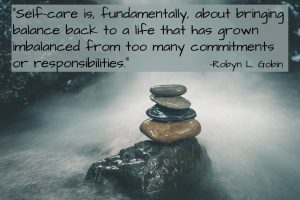《自律養生實踐家之旅347》 2018那一年後

很多人誤以為我的工作就是「對抗醫療」,這樣的直觀,不是來自道聽途說,就是出於斷章取義。就像有些不瞭解我的親友,以為我只是個「賣酵素的商人」。
然而真相是:真正認識身體的人,自然不會盲目信任醫療。我的工作,正是引導學習者透過行動,去認識自己的身體。
外界對我的不理解,我可以承受,陌生人用他們的觀點來批評、甚至謾罵,我也能接受。但當電視台因收到黑函,未經查證就給我貼上標籤,我一度難以釋懷。
那是2018年,網路黑函攻擊我的一年,來源始終是同一個人,一位已故好友的遺孀。她在黑函裡杜撰許多不實內容,沒想到電視台輕易買單,甚至胡亂報導。但也因如此,合作單位與我切割,我因此看清了他們的真面目。
如果不是2022年妻子與慧婷相繼辭世的打擊,2018幾乎會成為我這一生最難熬的一段時日。生命真正勵志之處,不在於沒有衝擊,而在於衝擊過後,如何站得更穩、過得更好。
沒有被擊倒,是因為我深知這份工作的價值。因為台灣,才有這份工作;因為斷食,才有這份工作;因為人類必須認清身體的真相,才有這份工作。
2018年底,我用僅有的資源重新招生開課。從在自家授課,到北高兩地租借場地奔波,2019年至今天,我持續遇見願意改變、渴望理解的眼神。
可是誤解始終存在,有人沒聽懂,就妄下評論;有人因身體出狀況,反而誤解更深;甚至有曾經信任的學員,把我的努力看成以賺錢為目的。
家屬的誤解更是無的放矢,2018年的黑函來自學員家屬,2022年慧婷告別式上對我謾罵的同事,基本上扮演著家屬的角色。
我早已習慣被誤解,因為不實踐的人永遠不會理解。但再多的誤解,也不可能澆熄我為「身體之道」奉獻的決心。
這份工作辛苦嗎?是的。困難嗎?也是。但我始終覺得自己幸運,因為能扛起這份責任是一種殊榮,也是一種幸福。
人常說,一生能交幾位知己已屬難得;我卻體會到:一生最重要的,是先學會和自己交朋友。透過與身體合作,我才真正與自己深度相遇。
然而,因為一頭栽進工作,我忽略了妻子的陪伴,也顧不上經濟的窘境。因為我始終相信,總會有人因為課堂上的一句話而改變自己的人生。
2018年的黑函,提醒我要奮起;2022年的生命大考驗,逼迫我更加堅強。
六年多過去,回望這段不斷「歸零重來」的開課歷程,看戲的人很多,冷言旁觀的更多。每當我看見渴望改變的眼神,總能再次被觸動,於是學會忽略外界的雜音。
我不止一次提醒學員:不要只學半套,不要沾到邊就以為自己全懂。
有些人,一隻腳還留在醫院的體制裡,另一隻腳才勉強踏進來試探,這樣的人總提醒我:時間要用在值得的人身上。
幾乎每天寫作的我常常觀察人性。每當寫到人性,腦中總浮現「自私」與「自大」這兩個詞彙。當這兩者集合在同一個人身上,往往看不上我們這種「小廟」。
經歷過事件與時間的洗禮,我愈來愈能辨識哪些是出於自私,哪些是來自自大。這不只是認清別人,也是一次次看見自己過往的浮濫。
常說自己沒有退休的時間表,但心裡清楚:必須為自己與健康留時間,不能只顧工作,也要注重傳承。
二十多年不曾感冒的我,一直以免疫力為傲,但最近卻破功了。這提醒我:不該再替自己辯護,是該認真調整的時候了。
或許有一天,我會突然不想再寫、不想再教。不是因為放棄,而是因為累了,被責任與工作折磨得身心俱疲,我知道那一天一定會到來,因為人總是人。
我的期許是:當那一天來臨時,所有模組都已完備,而我能繼續遇見更多「與自己在一起」的人,甚至「與身體在一起」的人。那,才是人生最美好的聚合。
(自我照顧的本質,在於為因過多承擔與責任而失衡的生活,重新帶回平衡。)
After 2018
Many people mistakenly believe that my work is all about “opposing medicine.” Such assumptions are either the product of hearsay or drawn from fragmented interpretations. Some acquaintances who barely understand me even think I am nothing more than a “businessman selling enzymes.”
The truth, however, is this: anyone who truly understands the body will naturally not place blind faith in medicine. My work is precisely to guide learners, through practice, to recognize and reconnect with their own bodies.
I can endure being misunderstood by outsiders. I can accept criticism or even slander from strangers interpreting me through their own lens. But when a television station, without any verification, labeled me based on an anonymous smear letter, it was difficult for me to come to terms with.
That was 2018—a year when smear campaigns against me on the internet were rampant. The source was always the same person: the widow of a close friend who had passed away from liver cancer. In her letters she fabricated many false accusations. To my dismay, the television station readily bought into it and irresponsibly broadcasted the story. As a result, partners distanced themselves from me, and I saw their true colors.
If it hadn’t been for the devastating blows of losing my wife and Hui-Ting in 2022, 2018 might well have remained the hardest year of my life. The true inspiration of life does not lie in the absence of trials, but in how one rises steadier and stronger after the impact.
I was not defeated, because I deeply understood the value of this work. This work exists because of Taiwan; it exists because of fasting; it exists because humanity must confront the truth of its own body.
By the end of 2018, with the little resources I had, I started recruiting students again. From teaching in my own home to shuttling between rented venues in Taipei and Kaohsiung, from 2019 until today, I have continued to encounter eyes filled with the will to change and the hunger to understand.
Yet misunderstandings never cease. Some comment recklessly without listening; some, when faced with physical setbacks, misunderstand even further; and some, once-trusting students, reduce my dedication to nothing but a profit-making scheme.
Family members’ misconceptions cut even deeper. The smear letters in 2018 came from a student’s family; the colleague who insulted me at Hui-Ting’s funeral in 2022 essentially stood in the same position—as “family.”
I have long grown accustomed to being misunderstood, because those who never practice will never truly understand. Yet no amount of misunderstanding can extinguish my resolve to dedicate myself to the “Way of the Body.”
Is this work exhausting? Yes. Is it difficult? Absolutely. But I have always considered myself fortunate, for carrying such responsibility is both an honor and a blessing.
It is said that having a few confidants in life is already rare. I have come to realize something deeper: the most important thing in life is first learning how to befriend oneself. Through cooperation with the body, I have truly met myself at the deepest level.
And yet, plunging headlong into this work, I neglected the companionship of my wife and turned a blind eye to financial hardship. Still, I held onto one belief: that someone’s life could be transformed by just a single word spoken in class.
The smear letters of 2018 reminded me to rise again; the trial of 2022 forced me to grow stronger.
Looking back over more than six years of this cycle of “resetting and starting again,” I see countless onlookers, many watching coldly from the sidelines. But every time I meet a pair of eyes yearning for change, I am moved once more—and I learn to ignore the noise of the outside world.
I have often reminded my students: do not stop at half-understanding, and do not assume you fully grasp everything just because you touched the surface.
Some people keep one foot planted in the hospital system while tentatively dipping the other into this path. Such people remind me: my time must be invested in those who are truly worthy.
As someone who writes nearly every day, I often reflect on human nature. Whenever I write about it, two words always come to mind: “selfishness” and “arrogance.” When both traits reside in the same person, they inevitably look down upon our “small temple.”
Through the test of events and the passage of time, I have grown sharper in discerning what stems from selfishness and what arises from arrogance. This is not only about recognizing others, but also about confronting the excesses of my former self.
I often say that I have no retirement schedule, but deep down I know: I must reserve time for myself and for my own health, not just for work. I must also give attention to passing on what I have built.
For more than two decades I never caught a cold, and I took pride in my immunity—but recently that record has been broken. It reminds me: I can no longer defend myself with excuses; it is time for real adjustments.
Perhaps one day, I will suddenly no longer want to write or to teach. Not because I have given up, but because I am simply exhausted—worn down by the weight of responsibility and work. I know that day will inevitably come, because after all, we are only human.
My hope is this: when that day arrives, all the modules will have been completed, and I will still be able to meet more people who are “together with themselves”—and even more, those who are “together with their bodies.” That, I believe, is the most beautiful convergence life can offer.


